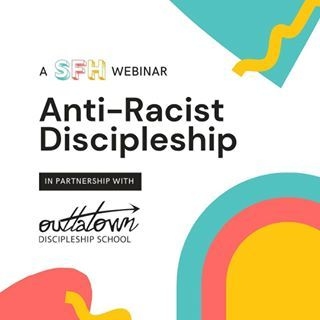News and Releases

Stories
Anti-racism webinar panel reunites teaching force behind Outtatown South Africa; draws +200 viewers
Thursday, July 9, 2020 @ 12:00 AM | Stories

Two weeks ago, former Outtatown South Africa leader Paul Peters and current CMU graduate student Justin Eisinga put their heads together. They had access to a network of highly experienced, educated leaders with intimate understanding of the evil—violent, systemic racism—which has rocked North America in its unveiling over recent weeks through media documentation of police brutality. The only question was how best to mobilize those resources.
Peters, now host of the popular podcast Searching for Hope, contacted the current administration of Outtatown. Tim Cruickshank, co-director of the program, says they were delighted to partner in making a public event possible through tech support, network sharing, and grassroots publicity.
In less than a fortnight the show came together: a six-member panel of extraordinary speakers including Antoinette Toto Sithole, TRC-member the Rev. Dr. Piet Meiring, and others; a crowd of listeners hungry to learn, tuning in from Vancouver to Ottawa and across South Africa; and the tech capacity to host this sacred work.
The aptly named "Anti-Racist Discipleship: A Searching for Hope Webinar," explored key topics like a) why claiming individually that we're "not racist" is not enough, b) the meaning and importance of proactive anti-racism; its foundations and expressions within Christian discipleship, and c) bridges between the post-Aparthied wisdom of South African panelists, and the culturally unique demands of anti-racist discipleship here in Canada.
In his introduction, Peters acknowledged that anti-racism cannot be understood or enacted exactly the same way in Canada as in South Africa. Our national histories of colonization and oppression are different; so too, our present struggles.
"Still, Justin and I both, in the process of talking through this, have said that there's something important that can happen when we learn from people who have been doing this work [i.e. active resistance and anti-racism] for much longer than we have," Peters said.
You can watch the full, recorded panel on YouTube, below. To whet your appetite, here are a few highlights from the panelists:
I have come to realize that it was not that difficult to erase the word Apartheid from the statutes book, to erase the word Apartheid from the Constitution—but to erase Apartheid from the hearts and the minds of people, that is something quite different, and very difficult.
– Rev. Dr. Piet Meiring (Emeritus Professor of Theology, University of Pretoria); minister of the Dutch Reformed Church, member TRC South Africa 1996
Part of my work [as a community developer] has been to help change the police system in [South Africa]. Now you can imagine having to work with the police? These were the ruthless, heartless people [who had enforced Apartheid] and my job was to help change and educate them—and also to work together with communities, to say 'okay we have a new system of policing in this country and we have to work together.' [...] I have experienced the worst of racism in my life, and God had to help me, transform me, so that He could call me to disciple and empower others to fight racism.
– Mpho Putu (MA); pastor, Community Development teacher and practitioner
One thing that's been very unhelpful when speaking about racism and race with Christians is this idea that [race should be ignored]: that there's neither Jew nor Gentile, that we are all made in the image of God, one human race, etc. Even though all those things are true, of course, I know that I move in this world as a very black woman. [...] Race is something we embody every day. It is helpful and important for us as Christians to name race as a real construct that has real consequences, without feeling like it offends our desired hope for humanity, our desired hope for humanism.
– Ayanda Nxusani (MA History, University of Capetown); writer/researcher on Racism and Intergenerational Trauma, and co-host of the podcast Walking on Water
While the travel abroad portion of Outtatown currently extends only to Guatemala, education against racism remains an essential component of the domestic portion of the program. During their semester in Canada, students learn about the historical and ongoing impacts of colonialism on Indigenous-Settler relations in Canada, both from in-class instructors and through a week on Manitoba's Roseau River Anishinabe First Nation, where they learn directly from local elders. To learn more about Outtatown, click outtatown.com.
KEYWORDS: anti-racism, Outtatown, Outtatown Discipleship School, webinar


 Print This Article
Print This Article